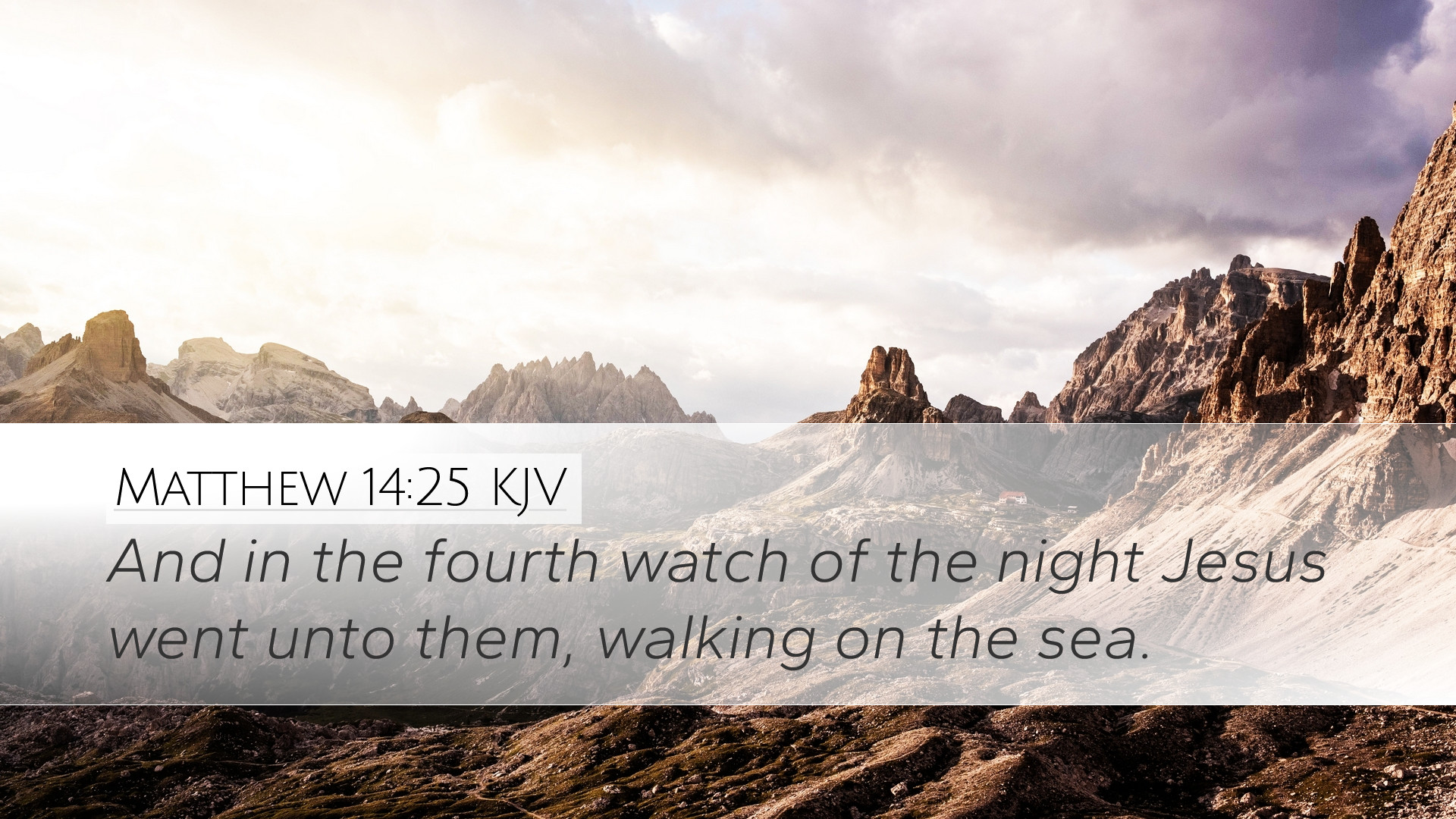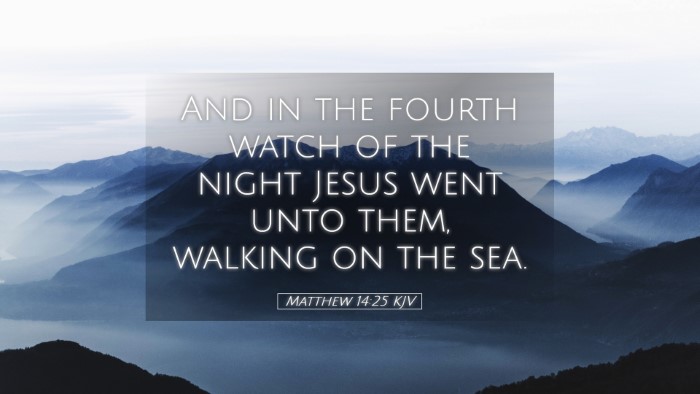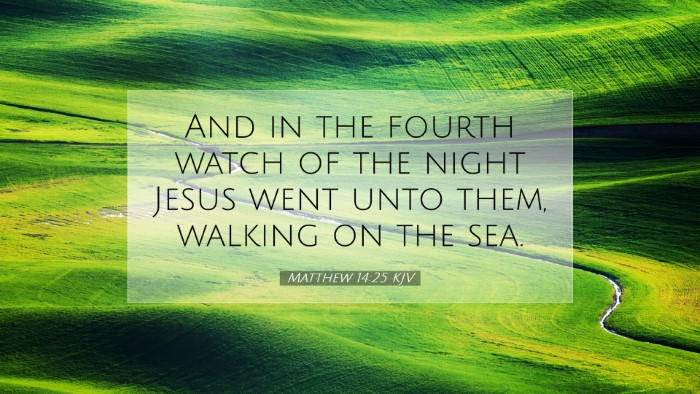Commentary on Matthew 14:25
Bible Verse: "And in the fourth watch of the night Jesus went unto them, walking on the sea." (Matthew 14:25)
Contextual Overview
This verse captures a significant moment in the ministry of Jesus, specifically during the fourth watch of the night, which spans from approximately 3 AM to 6 AM. The disciples were in a boat, struggling against the winds and waves, and it serves as an illustration of their trials and the divine presence of Christ amid adversity.
Insights from Public Domain Commentaries
Matthew Henry's Commentary
Matthew Henry emphasizes the miraculous nature of Jesus walking on the sea. He notes that Jesus chose this moment—a time of great distress for the disciples—to reveal His power and divine nature. Henry points out that this event symbolizes Christ’s sovereignty over the chaos of the world. He writes:
“In the darkest hour, when the disciples were most terrified, Jesus comes to them. This is a testament to His commitment to those who are His, illustrating that He will not abandon them in their times of trouble.”
Furthermore, Henry draws attention to the “fourth watch” as a significant interval, noting that it represents the time when hope seemed lost. He states that the disciples’ predicament is relatable to believers facing overwhelming circumstances. The spiritual insight here is that during the most challenging moments, Christ makes His presence known, urging believers to trust in Him.
Albert Barnes' Notes on the Bible
Albert Barnes elaborates on the timing of this miracle, suggesting that the fourth watch signifies the darkest moment of the night. He observes that, through this act, Jesus is demonstrating His control over natural laws, reinforcing the idea that He is not merely a prophet but the Son of God with authority. Barnes states:
“The disciples were alone, battered by stormy seas; yet, it is during their isolation that Jesus approaches them, showing that He can traverse barriers that confound humanity.”
Barnes also reflects on the disciples' fear, which was compounded by their belief that they were seeing a ghost. This illustrates the common human fear of the unknown, especially when enveloped in trials. He suggests that Jesus’ presence, walking on the sea, symbolizes hope and the reminder that Christ often comes when least expected, encouraging believers to look for His guidance during tumultuous times.
Adam Clarke's Biblical Commentary
Adam Clarke places significant emphasis on the nature of the storm that the disciples faced. He analyzes the geographical context, suggesting that the Sea of Galilee is known for its sudden storms. Clarke proposes that this encounter serves as a testing of the disciples' faith. He writes:
“By allowing the storm to arise, Jesus was not indifferent to their plight; rather, He used it to challenge their faith, illustrating that true faith must confront fear.”
Clarke further emphasizes that walking on the sea is a profound miracle that should draw believers to a deeper understanding of who Jesus is. He posits that this act shows that Jesus can commandeer the very forces of nature, symbolizing His divinity and the ultimate power over life’s challenges. He encourages readers to reflect on their own storms, suggesting that faith in Christ provides the ability to rise above difficult circumstances.
Theological Reflections
This verse offers profound theological implications. Jesus walking on the sea is not just an act of power but a revelation of His identity. In moments of crisis, the presence of Christ brings peace, reminding believers that He is actively involved in their trials. The act of walking on water can symbolize the overcoming of doubt and fear, inviting believers to place their trust in Him.
Practical Applications
-
Trust During Trials:
Believers are reminded to trust in God’s presence during difficult times, as He often arrives when we feel most vulnerable.
-
Overcoming Fear:
This passage encourages individuals to confront their fears, recognizing that Christ has authority over all situations.
-
Faith in the Unknown:
As the disciples struggled to recognize Jesus, believers today must be vigilant in recognizing God’s working in their lives, even when it is not clearly visible.
Conclusion
Matthew 14:25 serves as a powerful reminder of Christ’s divinity, presence, and authority over all aspects of life. As pastors, students, theologians, and scholars explore this verse, they should engage with the rich insights of historical commentaries, allowing its profound truths to inform both doctrine and daily living. In every storm of life, Jesus walks with us, providing hope, peace, and a call to greater faith.


